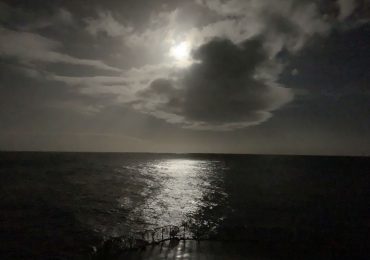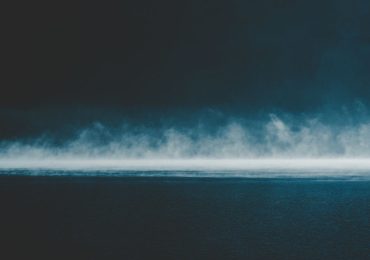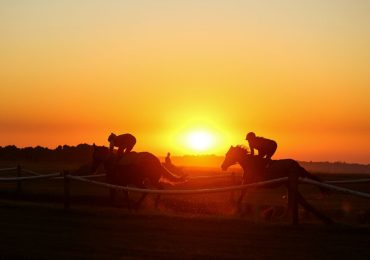New original fiction in The JRB.
~~~
From ‘Waiting’, a work in progress
The feeling of relief is much stronger than his fear as he finally stands on the side of the road, stark naked, his left hand pressed firmly over his black cap covering his pubic area while his right hand waves down cars, because it still hasn’t occurred to him that the drivers might be too disturbed by his presentation to stop and give him the lift he so desperately needs.
In time, he notices a pattern: one car after the next slows down, takes him in and then veers off at speed. In time, he puts himself in their shoes. He too would not stop to give a lift to a visibly crazy-looking grown man like him. He must do this differently. It is getting dark. He has no idea where he is.
There are no visible signs anywhere close by, just rows and rows of these massive mielie fields on either side of the road. His heart seems to be pacing faster than usual. It is with Kukanje, their daughter, and his wife, Nomlando. He feels the need to instruct himself: Walk, Mchitheni, walk! Saying these words aloud, repeatedly, helps. It’s better to just walk, he thinks. Yes, just walk, a marching kind of walk. An energetic walk, with one arm swinging while the other arm’s hand is on cap duty. This way he is active, and the drivers only see his back. A strident man on a mission is worth stopping for. And the faster he walks, the more he will look like a lift-deserving kind of man. A dignified man on a mission. This way, someone might stop. Will stop.
He walks on the yellow line, faster and faster. It now dawns on him that there is no need to cover his pubic area and besides, if he moves both arms, he will be able to walk faster. Best wear the cap and keep walking. As it gets darker, he begins to worry about his body disappearing in the darkness. He is not afraid of the dark, he tells himself this repeatedly. But being usurped by the darkness that bothers him. He begins to panic, just a bit. But he walks. And walks.
The cars now screech to a stop—well, an almost stop—once they see him, because now that it is decidedly dark, they only see him for what he is when they are much closer. Each time someone stops, he runs a bit to catch up and as soon as he is close the driver takes off. He clearly must wait, while he walks. He knows about the lotto: somebody wins, eventually.
He starts to run as it gets colder. And he runs. He runs and thinks back to his high school days when he used to run the 400 metres and win. He had the stamina and mind frame and emotion for that distance only, his sports teacher had told him. He always won; everyone knew. He begins to see his schoolmates, the athletics field, people cheering, and he runs. He remembers the provincial and national wins and his father’s pride when he beat everyone from a boys-only school in Johannesburg. He made history that day, as that school prided itself on never losing to boys from co-ed schools, let alone boys from a village in the deep rural areas of Natal. When they came back from Johannesburg his name was all over the school newspaper and the principal called him to stand in front during the morning prayer session, how the school began every day. He pictures his father’s elongated smile, hears his raucous laughter, and hears him call his name ‘Mchitheni mfana kababa!’ In the deepening darkness, Mchitheni sees his father, hears his voice, and runs faster and faster.
~~~
- Makhosazana Xaba is a Patron. She is the author, most recently, of Noni Jabavu: A Stranger at Home, co-edited with Athambile Masola; the collections of poems The Art of Waiting for Tales (Lukhanyo Publishers, 2022) and The Alkalinity of Bottled Water (Botsotso, 2019); and the editor of Our Words, Our Worlds: Writing on Black South African Women Poets, 2000–2018 (UKZN Press, 2019). She is Associate Professor of Practise in the Faculty of Humanities at the University of Johannesburg.
~~~





